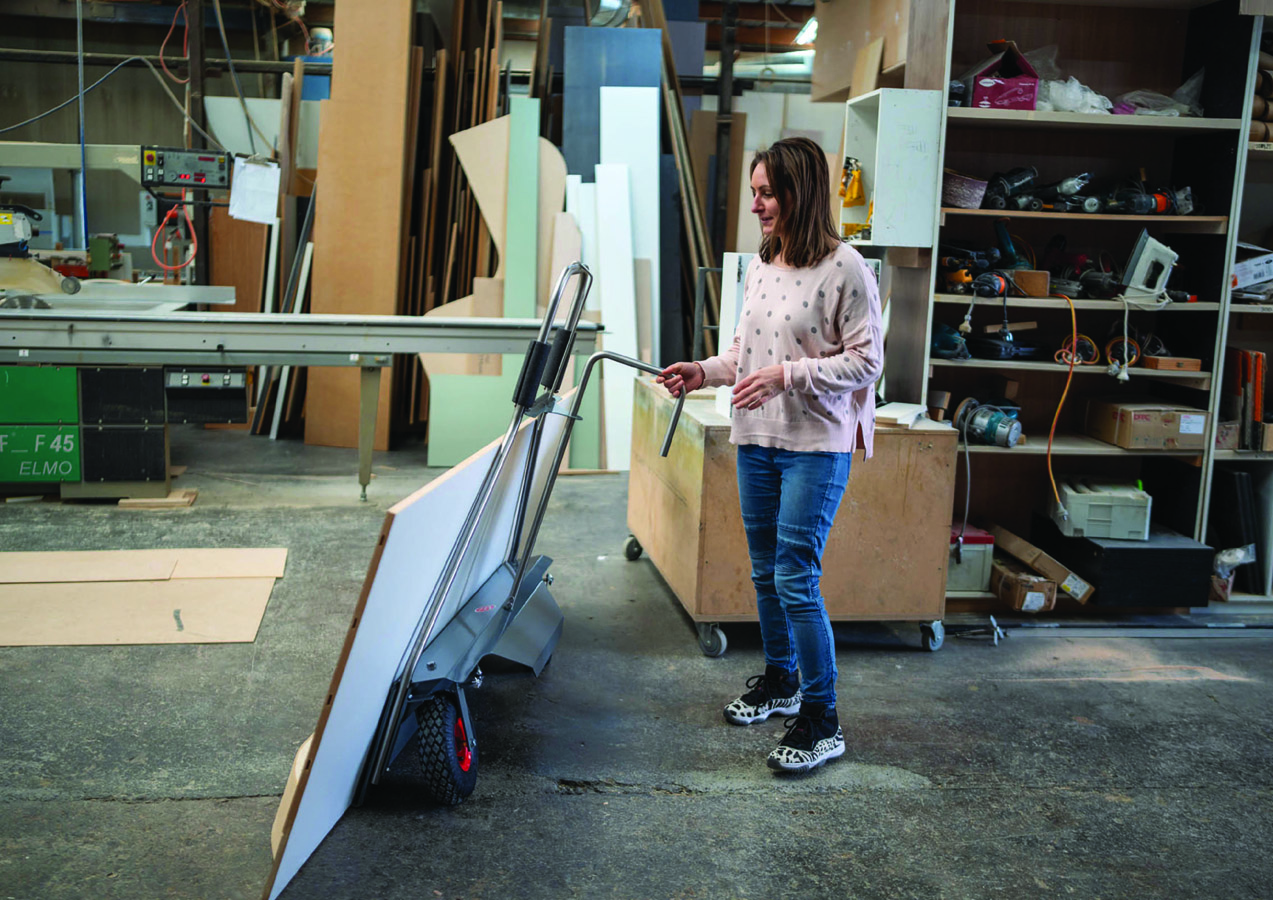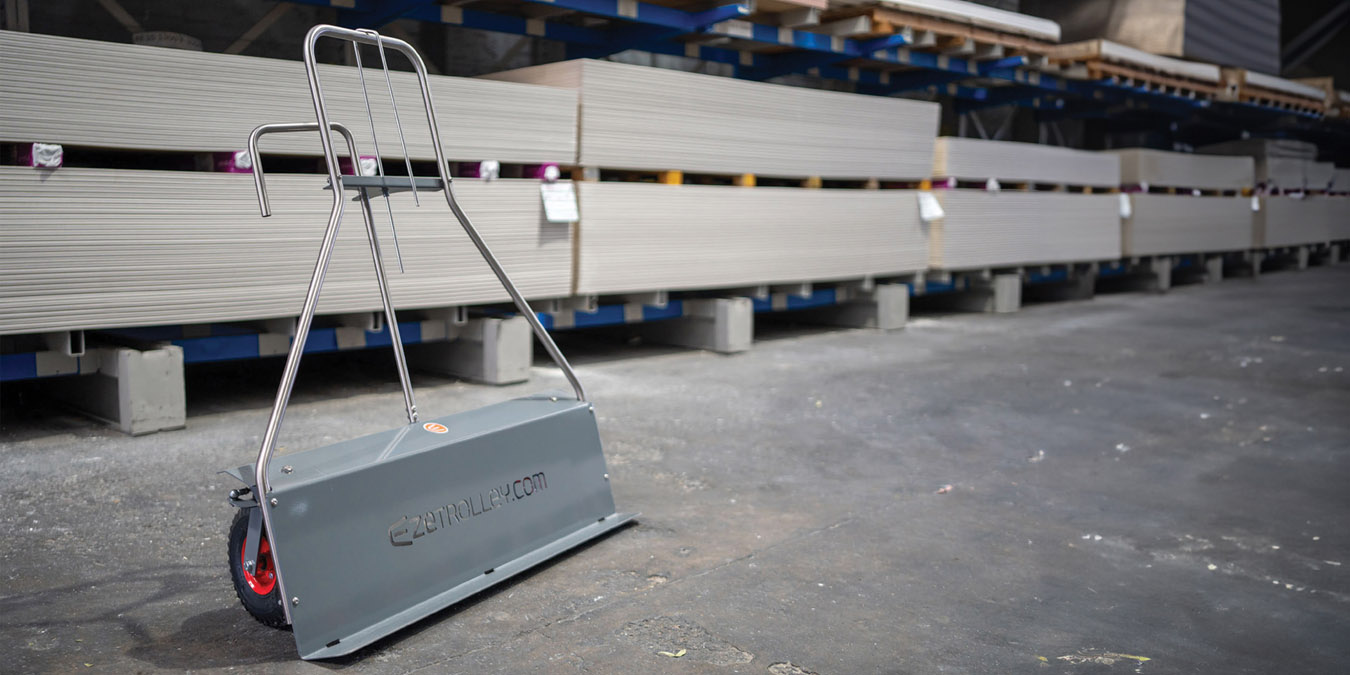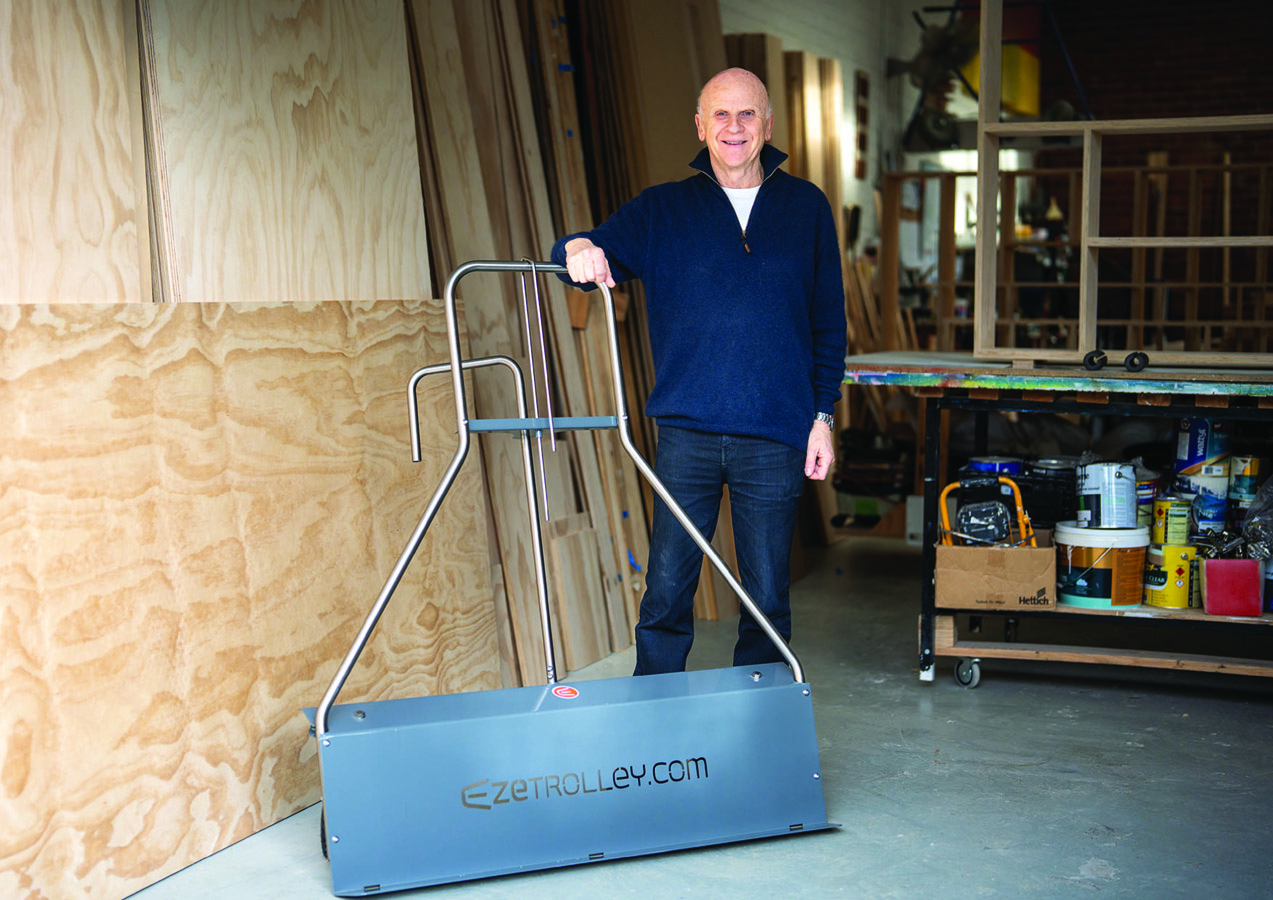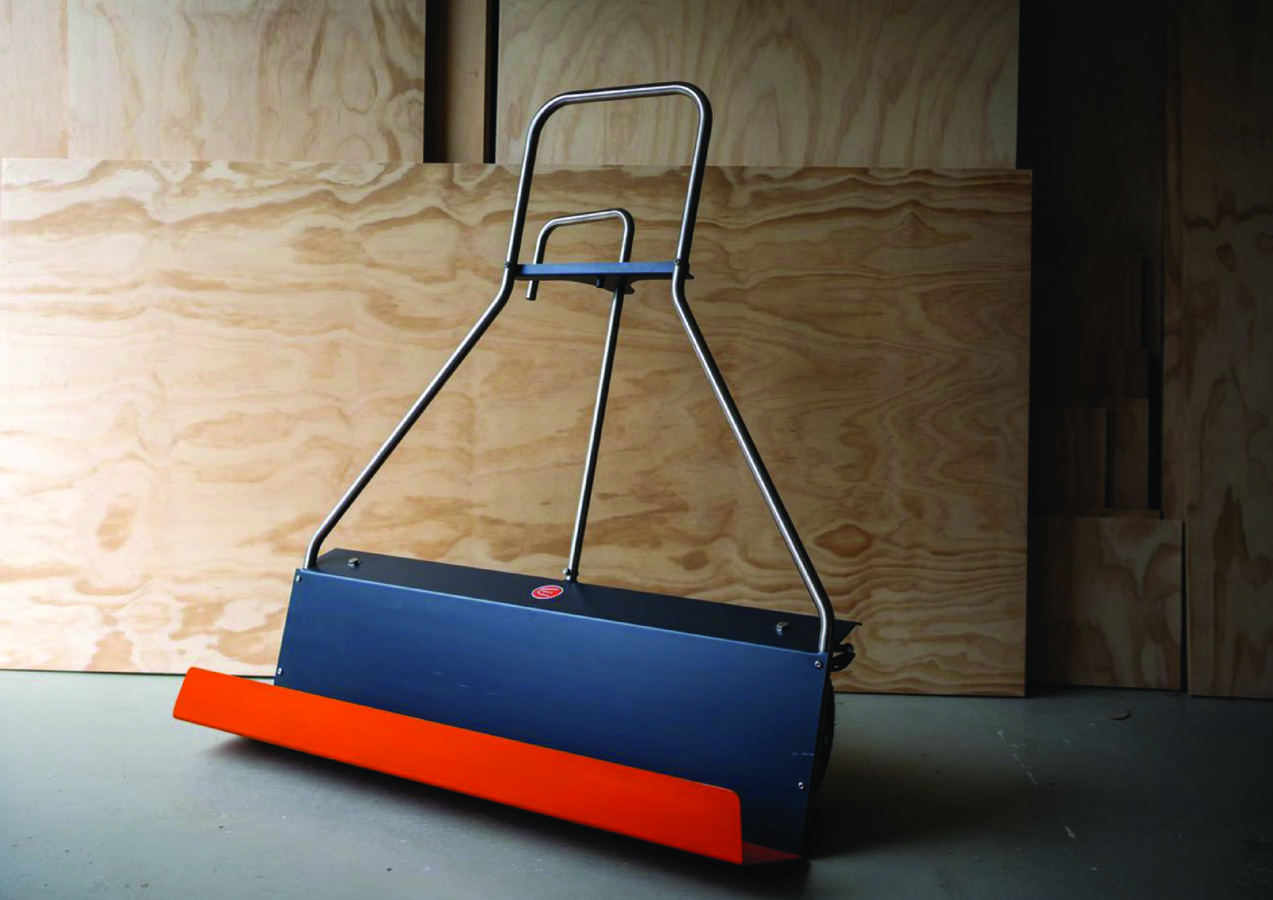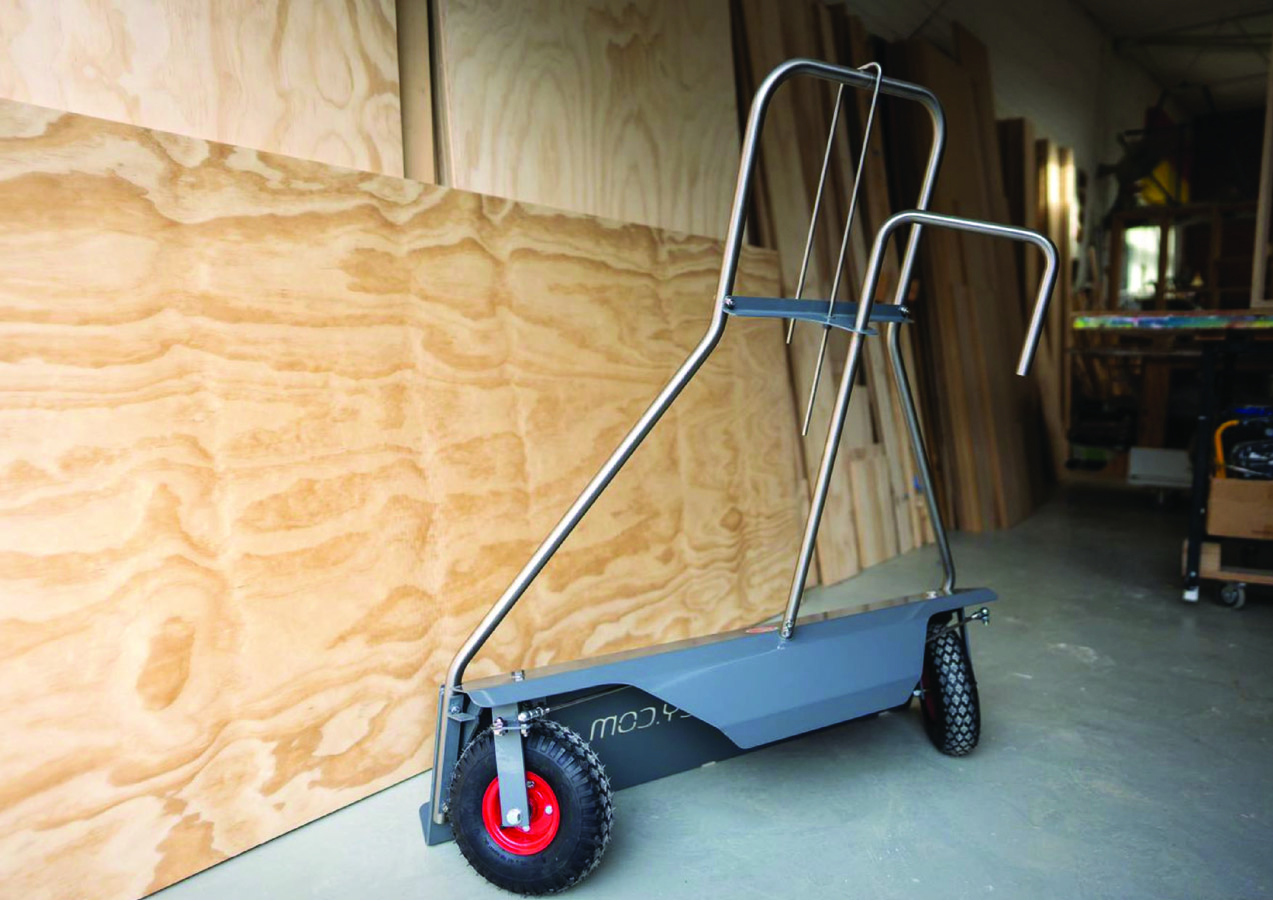The Ezetrolley’s design process was comprehensive and iterative, involving over 30 prototypes to refine functionality and user experience. The process began with extensive research to understand the specific needs of transporting large, heavy sheet materials through narrow spaces. Initial concepts focused on user safety, ease of maneuverability, and loading efficiency.
The team then developed various prototypes, each tested for ergonomics, load capacity, and steering performance. Feedback from real-world users informed adjustments and improvements at each stage. Key innovations included a ground-level loading tray and a sophisticated steering mechanism that allows a 360-degree turn within the trolley’s width.
To ensure durability and sustainability, the Ezetrolley was constructed using premium materials like stainless steel for handlebars and fittings, and Teflon washers for lightweight, low-friction bearings. The final design features customizable, clip-on trays to accommodate different materials, a powder-coated finish for longevity, and premium-quality wheels and tires for smooth, reliable movement.
The project met and exceeded the design brief by creating a single-operator solution that significantly reduces injury risks and material damage. The innovative steering mechanism and ergonomic design provide unmatched maneuverability and ease of use, while the use of high-quality, sustainable materials ensures the Ezetrolley is built to last.
Implementation involved local manufacturing in Melbourne, emphasizing quality control and supporting the local economy. The final product has been rigorously tested in real-world conditions to confirm its reliability and effectiveness.
Overall, the Ezetrolley project demonstrates a professional design process and execution, successfully addressing the initial problem and achieving the intended outcome. The final design is a user-friendly, durable, and sustainable solution that enhances safety and efficiency in transporting large sheet materials.

